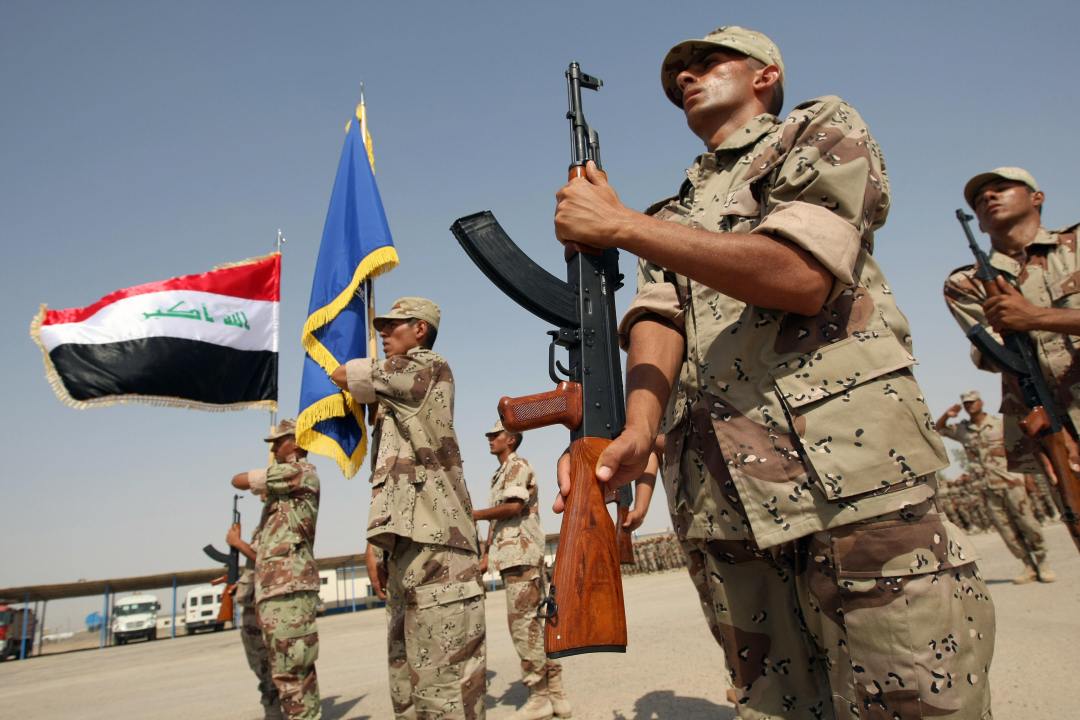 In the U.S, after a slow start by a media suffering from post-9/11 stress, a great debate about Iraq is going on. Every administration initiative is evaluated, wonks have made careers out of tracking Iraq policy and the press are full of analysis. The future of Iraq’s leader is a source of constant editorialising. Every month, politicians and analysts are flown to Baghdad by the U.S government for briefings. In fact, the surge was not even invented by the White House, but by the American Enterprise Institute, an independent, albeit government-affiliated think tank.
In the U.S, after a slow start by a media suffering from post-9/11 stress, a great debate about Iraq is going on. Every administration initiative is evaluated, wonks have made careers out of tracking Iraq policy and the press are full of analysis. The future of Iraq’s leader is a source of constant editorialising. Every month, politicians and analysts are flown to Baghdad by the U.S government for briefings. In fact, the surge was not even invented by the White House, but by the American Enterprise Institute, an independent, albeit government-affiliated think tank.
The contrast to Britain could not be starker. Here there is little debate and what exists is decidedly stale. On the left and parts of the isolationist right, there is a constant clamour to get out. The Tories talk about an Iraq inquiry, but like most of the mainstream centre-right, confine themselves to troop-supporting statements. Parliamentary committees comment mainly on the margins. The lack of debate is perhaps unsurprising.
What’s the point of tracking the ups-and-downs of British Iraq policy, some argue, if it is a British-accented copy of U.S policy? And anyway, the centre of gravity has shifted eastward to Afghanistan, right? Talking about NATO’s ISAF mission also spares Gordon Brown recalling the legally-questionable, WMD-missing start of the Iraq War. But all this is wide off the mark. Ask the U.S and they will say that Britain’s Basra policy has, until the 2007 Charge of the Knights, been written in London not Washington. I can think of plenty of key decisions that would have benefited from public scrutiny since the successful invasion: Was it a good idea to establish a Basra Development Commission? The government claimed to have surged troops in late 2006 under General Richard Sheriff, but was this enough? Did he oversell his reconstruction plan? Should the government have allowed U.S troops into the south? When UK relocated from downtown Basra to the Air Station, was this the right move? And what about Basra’s wily governor – should newspapers have debating his future as the Foreign Office did rather than simply report on his tussle with British officials?
It’s easy to blame the government, who could do more to brief analysts and offer fact-finding tours to experts who can then track developments better, and help disseminate information for debate. I don’t recall a single such trip in contrast to the hundreds the U.S organises. At the most, reporters get a two-day trip or a chance to accompany the Defence Secretary – not the best basis, even for the brightest journalists, to understand the complexities of a place like Basra. The Times’s recent story of Britain’s non-involvement in the Charge of the Knights is a perfect example – post-facto, the press chase a scoop; but why were they not debating the need for a similar surge beforehand? So some blame lies with the media. Some also lies with Britain’s closed-shop bureaucracy – which resists outside policy advice – and some, again, with the poor state of think-tanking in Britain. Few research institutes have money to send staff to Iraq on their own volition and many chase government contracts with the obvious criticism-muffling consequences. For a country that prides itself on tough-minded scrutiny of government policy, we may be falling short of the mark. Let’s hope that changes over British Afghan policy.







Comments